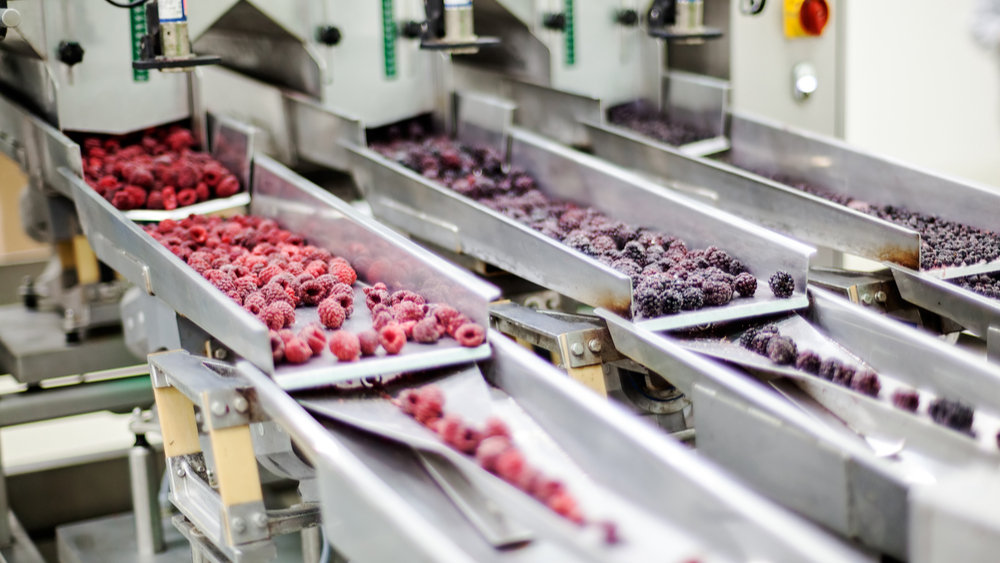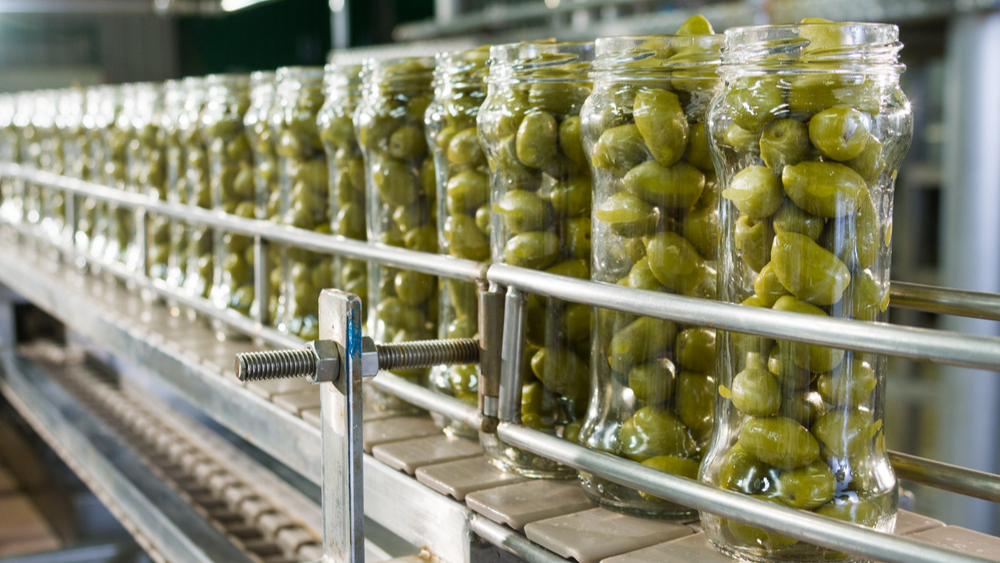A guide to checkweighing in the food industry
Checkweighing is an integral part of any food production line, allowing you to check the weight of your products. In doing so, you can ensure your business’s compliance with trading standards, identify contaminants and reduce waste.
In this guide, we will be exploring the role checkweighers play in the food industry and how you can find the right system for your plant.
- How does checkweighing work?
- What are the benefits?
- Finding a checkweigher for your production line
- Summary
How does checkweighing work?

Checkweighing is when you compare the weight of a product against a set limit. The set limit will be a pre-determined weight that you have specified for each of your products. For example, if you make a product that should be 500 grams, you will need to checkweigh each batch to make sure they are the correct weight and adjust it accordingly if it falls over or under the pre-set limit.
The features of your checkweigher will vary depending on the model you choose, but a basic checkweigher will have an indicator to show the weight reading. It will also have a series of conveyor belts: a reject belt that will sort incorrect product away from the rest of your line; a weight belt, mounted onto a load cell to weigh your product; and an infeed belt that controls the speed or distance between batches ahead of weighing. A checkweigher system should also be compatible with most production lines and conveyor systems, allowing for an automated process.
Checkweighers can be placed at various points in your production cycle. This could be pre-production, to ensure you have the right amount of ingredients in place for the production process, as well as at the end of the process as a final check. Finally, checkweighing can be used to weigh packs of product, so they reach the right combined weight for a shipping pallet.
What are the benefits?

There are many benefits for food producers who choose to install a checkweigher as part of their production line. First and foremost, a checkweigher allows you to guarantee consistent weights across your products. This is particularly apt if your product uses pre-printed food packaging and labelling, so you can ensure that the product matches the stated weight and nutritional information given on this packaging. This will also enable you to remain compliant with UK Food Standards.
By allowing you to check the weight of your product, checkweighers can also act as an inspection system. If the weight of your batches falls outside the normal limits, it could be an indicator that there is an unwelcome addition – such as metal or substances from another line. This means that, in line with other inspection systems that may form part of your production line, checkweighers can help you to identify and eliminate contaminants. This, in turn, reduces the risk of costly product recalls and potential danger to your customers, as well as further ensuring regulatory compliance for your business.
Checkweighers can also help you to establish an effective production process. By making sure your applications remain within the limits you set out and that your final product does not exceed the agreed mass, you can reduce waste and prevent error across your plant. You must offer the right training for your staff to further increase productivity and accuracy. This keeps running costs down and increase profit margins – a winning combination for any food manufacturer.
Some checkweighers also feature data analysis software to allow real-time analysis of your products. An example of this is the Yamato Stats software we employ in our machines. This allows you to not only identify issues with your product, but can also be used to inform your future production efforts. Having recorded data on your products assists with auditing and can help to ensure consistency across your lines.
Finding a checkweigher for your production line

A checkweigher is a welcome addition to any production line – but, with many different variants on the market, it is essential to find one that works for you.
The first step to finding an appropriate checkweighing system is knowing what products you will be using it for. These days many checkweighers are built to suit a wide variety of applications, from meat to granulated products. However, if your production line is involved with wet product, a waterproof checkweigher will be your best solution. Other factors to consider may be the size of your loads, the size of the scale needed to accommodate them and the weight limit of the machine. You may also consider the IP rating, which details the protection of a machine against the likes of rust and water. IP65, 66 and 67 mean the machine is waterproof. This will be particularly crucial if you work with a messy product or will be using multiple applications on the same machine, making ease of cleaning an essential.
Different checkweighers will have various features, so it is essential to compare these when searching for yours. Additional features may include touch screens, responsive load cells, error alerts and adjustable controllers. Some checkweighers may even include software for data analysis, such as USB and printers so that you can get greater insight into your product weighing.
You will also want to compare different systems based on factors such as their accuracy, speed and maximum capacity. Generally speaking, you want a system that is as accurate and as fast as possible, allowing for increased productivity across your production line. You may also want to check the power consumption of your machines, as lower consumption could lead to reduced running costs and environmental impact.
Finally, the supplier of your checkweigher could affect your decision to purchase. After you have purchased a checkweigher, regular maintenance is required to keep your machines working at an optimal level, identify any repair issues ahead of time and reduce downtime. However, some suppliers offer maintenance contracts on their products, giving you access to repairs and assistance whenever you need it from those who know the system best.
Summary

A checkweigher can have many uses when it comes to food production; it can help at various stages of the production process, it can identify contaminants, and it can optimize your plant. As a result, you can benefit from reduced running costs, better compliance and consistency across your products.
When implementing a checkweigher into your production line, make sure you get a system that is right for your business and its applications.
Yamato’s range of checkweighers can provide an ideal solution to every food producer, including the J-Series and waterproof I-Series. With capacity up to 6kg and industry-leading speeds, they can work with a broad range of applications to boost efficiency and productivity.

